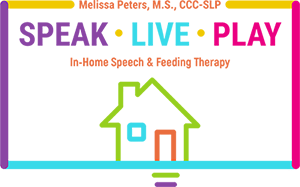How Speech-Language Pathologists Assist Those with Dementia and Alzheimer’s
Contrary to what most people think, Dementia and Alzheimer’s are not normal parts of aging. Unfortunately, these conditions are the leading cause of disability for most people globally over the age of 65. Generally, most people associate dementia with memory loss. Unfortunately, the destructive nature of the condition includes much more. For starters, difficulty in communication and swallowing is quite common in people suffering from dementia. The patient often has trouble finding the right words to mention the day-to-day objects and even forget the names of those closest to them.

The condition makes it hard for them to get involved in a conversation, making them lonely. Even worse, research shows that social isolation only makes the dementia symptoms progress rapidly. It is essential to tackle the symptoms or at least manage these symptoms before life becomes unbearable. At this time, scientists are tirelessly working to find a cure for dementia and Alzheimer’s disease but have not achieved that yet.
In the meantime, the speech-language pathologists (SLPs) are at the front line in helping the people who have dementia, and Alzheimer’s disease manage the symptoms and live a quality life—as for the family members and caregivers, learning how to communicate with a person who has dementia makes a world of difference. SLPs help the patient and caretaker to learn crucial techniques that lead to a better quality of life on both ends. The strategies will help minimize the strength and the anxiety, fostering a stronger bond and better quality of life for both.
What is Dementia?
Dementia is not a specific disease rather a chronic and progressive syndrome that results from brain acquired disease. It refers to a collection of symptoms that causes many disorders that affect the brain’s health. Dementia is characterized by a progressive decline in memory and cognitive areas, including intricate attention, learning, executive function, and language. Over time, these conditions worsen and can have an enormous impact on independent functioning and daily activities.
In most cases, doctors diagnose a patient with dementia of two or more brain functions such as language and memory are impaired significantly without loss of consciousness. Dementia also impairs cognitive ability, making it hard to communicate. For instance, significant memory function and difficulty in language processing make it hard for the sufferer to follow or participate in a conversation. Judgment problems can also lead to difficulties with eating and nutrition in people suffering from dementia.
What is Speech Therapy?
Dementia causes communication problems and other cognitive functions such as memory loss, eating, drinking, and swallowing problems. At its core, Speech therapy is an intervention service provided by speech & language pathologists. The service aims at improving the patient’s verbal and nonverbal language. SLPs mainly teach two main essential components.
- Addressing articulation, fluency problems, and voice volume recognition by mouth-voice coordination
- Using and expressing language through various communication forms, including sign, body, computer, writing, or using social media.
It is common for patients to start noticing speech-related issues on the dementia onset. However, in some cases, patients with dementia speak fluently but may face specific cognitive deficits such as memory loss. Speech & language pathologists have unique training to manage these problems and voice problems. The professional works to teach the patients how to compensate for their cognitive deficits and recover lost memory through environment modification.
SPLs also equip the patient with various techniques such as using memory books, errorless learning, and other external memory aids. The professionals will also assess the patient’s capacity for eating, drinking, and swallowing. The assessment enables the SPL to provide management strategies that help the patient take their meals without choking risks.
Stages of Dementia
Similar to other conditions, dementia occurs in various stages. Managing the condition at the onset is crucial as this helps the patient learn some tricks before their memory deteriorates. Unfortunately, dementia is not curable; however, teaching the patient some techniques on managing memory loss and cognitive problems makes their life more comfortable. Dementia occurs in three stages, namely, early stage, middle stage, and final stage.
- Early Stage
Mood, personality changes, and gradual confusion often mark the initial dementia signs. During the early stages, the patient tends to become more irritable and frustrated over unusual things. Due to the embarrassing moments, the patient also becomes anxious, especially when meeting with their friends. The routine chores become more of a task, and the patient is easily distracted from finishing one task.
The patient also gets lost, especially when they go outdoors, making it challenging to go to the market, church, and other public places. You will also notice that your loved one is misplacing their items more often. It is not easy for a patient to accept that they are suffering from dementia. As such, you will find your loved one growing more irritable over a small disagreement.
- Middle Stage
The middle dementia stage is often an ongoing progression of the early symptoms. The patient becomes more confused than before. Memory loss also becomes more pronounced where you will find your loved one forgetting even recent events. In most cases, these symptoms are more prevalent during the nighttime and afternoon. Your loved one becomes more suspicious, restless, and fidgety.
In these stages, your loved ones may also forget their close friends and family members. They may also talk more to strangers or mistake the strangers as someone close to them.
- Final Stage
Dementia’s final stage is not only distressing to the patient but also to the caretaker. The patient loses his/her ability to recognize their kids, brothers, and those closest to them. Lack of treatment may make the patient lose the ability to communicate. Instead of using words to interact, the patient starts to scream or groan. Even with a balanced diet, the patient will continue losing weight. Since they become more fidgety and shaky, the patient often grows self-conscious about their eating habits. Additionally, the patient tends to sleep more than usual.
Speech Therapy Treatment for Dementia
Dementia affects various cognitive functions, including memory, visual perception, and attention. Accumulation of these cognitive problems often leads to disorientation, impaired judgment, and depression. SPLs help the patient to manage the symptoms and maintain a level of independence for extended periods. Speech therapy assists in stimulating cognitive ability through learning activities that help restore memory. The patient learns how they can modify the environment, helping them adapt to the ongoing cognitive changes.

Various behavioral changes accompany dementia, including wandering, preservation, and repetitive question asking. Early referral and intervention are crucial as they provide the patient with the necessary support to mitigate the changes. An early referral will also enable the SLP to meet with the patient and his/her family. The SLP will explain their role and provide the support that the patient and the caregiver needs.
Meeting with the SLP during the last stages of dementia has various negative consequences. The family and patient miss’s education opportunities and support that would have helped them enjoy the quality time together, for starters. The SLP will also address the cognitive problems on the onset. For instance, lack of consulting an SLP could result in chest infection or aspiration pneumonia due to swallowing problems.
What is the role of Speech-Language Pathologists for people with dementia?
It is important to note that the SLP’s role is not to cure dementia but to facilitate and provide the support that enables the patient and their family to enjoy quality time. SLPs assist the patient from the early stages to the final stages and various levels of the condition progression. The professionals help identify the strengths and deficits in communication, swallowing, cognitive, language, and speech. The professional will also offer customized treatment that focuses on improving the patient’s life and independence.

The role of SPLs includes screening, assessing, diagnosing, and treatment. The professional works as a multidisciplinary team, and their role includes but not limited to;
Educating other health caregivers, third party payers, and legislators on the patients’ needs and their roles in managing the cognitive and swallowing problems related to dementia
- Diagnosing the cognitive-communication problems associated with the condition
- Assessment, diagnosis, and treatment of dementia-related swallowing problems
- Coming up with a customized treatment plan that helps restore cognitive-communication and functional ability for an extended period
- Offering indirect intervention through environment modification and advising the caregivers
- Consultation and collaboration with other professional, caregivers, and family members to facilitate a customized plan to ensure a continuum of care
- Advocates for people living with dementia and their family at local, state, and national levels, as well as providing professional testimony when necessary
How does dementia affect communication and swallowing?
Individuals who have dementia present unique and varying difficulties when it comes to expressing their feelings and thoughts. The communication changes in the patient include the following;
- Finding the right words becomes difficult
- Making speech and sentences that make little or no sense
- A significant decline in writing and reading skills
- The problem in expressing the appropriate emotions
- Inability to understand what the other person is saying or grasping only some of the parts of the dialogue
Lack of social convention during a conversation. Here the patient may consistently interrupt the speaker, ignore the speaker entirely or fail to respond when asked.
Dysphagia- a term that also refers to swallowing issues is also familiar with people suffering from dementia. The problem arises due to various factors such as damage to the brain’s parts that control swallowing. Research shows that about 70 percent of individuals who have dementia will experience dysphagia at some point. The condition may lead to various complications, including malnutrition, weight loss, and aspiration pneumonia. SLPs recommend the following strategies to help manage dysphasia.
- Provide a familiar dining environment. Ensure that you take your food with the patient and at a regular time each day
- Prepare food or cut it up in portions that are easily picked up by fingers.
- Modify the diet as prescribed by the SLPs
- Prepare visually appealing food by separating food with vibrant colors on separate plates so that the texture and flavor are more distinct.
Notably, these difficulties are not always limited to swallowing. Other behavioral and cognitive changes related to dementia also affect eating habits. The patient also finds it hard to shop for shopping, planning and preparing meals independently. The sufferer may also forget to eat or have cognitive problems in determining the need to eat. As the condition worsens, the patient becomes more distracted during meals and may face problems recognizing food and utensils.
Strategies for Communicating with dementia patients
- Eliminate distractions
When taking meals, eliminate any background noise. Turn the TV, radio off and eliminate all distracting things from sight. Find a calm, familiar dining place where you can sit down face to face.
- Announce yourself
The patient often feels disappointed when they do not recognize their loved ones. To eliminate the tension, always identify yourself before you start a conversation. Make sure to refer to the patient by name to get his/her attention and awareness.
- Anticipate Mix-Ups
When the patient speaks, listen carefully and anticipate mixed up words. As such, you will always find the right words to respond without overcorrecting.
- One at a time
Dementia patients have problems processing several thoughts simultaneously. When communicating, concentrate on one idea or simple stories one at a time.
- Keep the dialogue simple
Do not use complicated jargon when speaking to your loved one. Use primary language and keep your stories as short as possible.
- Always be positive
Ensure that your expression and language are cheerful. Being an adult, it can be frustrating when you have your kids or caregiver correcting you in everything you say or do. Instead of saying ‘not this way,’ use more positive words such as ‘try it like this.’
- Do not be hasty
An individual suffering from dementia needs more time to find the right words. Be patient and wait for the person to find the right words without finishing their sentences.
- Use body language
Facial expressions, hand gestures, touch, and eye contact is crucial. These signs will enable you to communicate better with your loved ones.
Treating Dementia at the Speech-Language Institutions
SLPs understand that each patient is different. They take a different and comprehensive approach when working with patients who have dementia, their family, and caregivers. At first, the professional will assess the current level of functioning for the patient. The SLP does this by determining the strengths and deficits of the abilities on a rating scale. The professional will assess language skills, swallowing abilities, and cognitive skills. He/she will also assess the memory, including short term, long term, and working memory.
Next, the professional will talk to the patient’s loved ones and caregivers about their difficulties in day-to-day activities. After assessing the ability, the professional will diagnose the dementia stage and develop a treatment that fits each patient. In most cases, as dementia progresses, it brings along various behavioral changes. The SLPs can address most of these behavioral changes, help the patient and caregiver cope with them.
However, in the end, it comes down to ensuring that the patient can still communicate with his/her friends and family. At the final stages, communication deteriorates quickly. The patient may become nonverbal. The SLPs can still provide strategies that help you communicate with your loved one. It can be with body language, expressions, or even writing. Additionally, the professional provides strategies to prevent swallowing related problems.
Is there a cure for Alzheimer’s disease?
Currently, we do not have a definitive cure for Dementia and Alzheimer’s diseases. The good news is that scientists are working round the clock to find the cause and cure for these diseases. At this time, a lot is done to help alleviate the impact of the symptoms. SLPs help dementia patients and people close to them communicate better, avoid swallowing problems and have a better life quality.
Tools SLPS can use to assess dementia
SLPs use various screening tools to help evaluate the cognitive deficits associated with dementia. One of the standard tools that help determine the disease progression is the Global Deterioration Scale. The scale measures the disease progression in stages, giving a clear understanding of the patient’s strengths and deficits. Medical professionals also use the GEMS scales to classify the retention and decline of skills in patients with Alzheimer’s and Dementia.
The scales are not only useful for medical professionals and SLPs; they are also useful for family and caregivers. As a caregiver, you can do an interview checklist that helps understand how the deficiency of skills affects your loved one independence level. The results will also enable the SLPs to develop a treatment procedure that improves the quality of life for both the patient and the caregiver.
After determining the stage and specific skill loss, the SLP determines how to set up the right environment to manage the condition. Living environment modifications to reduce distractions are effective strategies that help the patient cope with the disease. During the initial stages, the SLP will also teach the patient how to communicate effectively and participate in challenging cognitive tasks.
A memory book is another powerful tool that helps in managing dementia and Alzheimer’s disease. The book contains crucial personal and medical information that acts as a patient reference as the condition progresses. The patient can also record crucial information and facts that help them know who they are.
A clear and straightforward calendar setup with a dementia clock will also help the patient know the day and date. The clock may also include an alarm to remind the patient of medication schedules. The patient also learns how to write things in a notebook or daily journal, visualizing, spacing retrieval training, and memory booking to help keep track of their memory.
When to Contact a Speech-Language Pathologist if Your Loved One Has Dementia
Many are times when people brush off memory lapse relating to aging. Unfortunately, memory problems may progress and gradually disrupt daily life. As such, it is something that you should not take lightly. If you notice you are a loved one or yourself having a problem maintaining a fluent conversation or finding it hard to get the right words, consider contacting an SLP for an evaluation. You may also do so when your loved one has problems finding directions home or expiring too much confusion when performing basic tasks; consider contacting an SLP for an evaluation.

SLPs help family and caregiver learn how to adapt to lost cognitive skills and word retrieval deficits. They learn how to use supportive conversion strategies such as slowed speech, gestures, simple sentences, facial expressions, and frequent pausing. The strategies will enable both the patient and caregivers to understand each other faster. As the disease progresses, understanding complex ideas becomes difficult. Teaching the caregiver how to speak to the patient in a simple, calm manner will significantly improve their quality of life.
Caregivers of Patients
If your loved one has dementia, it does not mean that things need to be awkward between you. Unfortunately, it is painful to see your loved ones lose independence or, worse, be unable to express themselves. The burden is likewise heavy on their side when they find that they cannot communicate not alone do basic tasks. The good news is that a speech-language pathologist can help you maintain a happy, quality relationship with your loved one even when the disease strikes. The SLPs offer the family members and caregivers how to communicate and manage the symptoms such as swallowing problems, which may lead to further complications.
Final Thoughts on Speech Therapy
Dementia is a miserable condition that makes life unbearable for the patient and other family members. Loss of independence and communication makes the patient lose the will of living. That is why it is crucial to find the right support to continue enjoying a quality life with your loved one. Speak Live Play (SLP) offers a variety of support, managing strategies, and advice to combat both dementia and Alzheimer’s diseases. The strategies provide the necessary support for both the patient and their family to adapt to the cognitive changes.
Moreover, caregivers and family will also benefit from the education that helps them prepare for the changes to keep an eye on. Speak Live Play also offers them instruction on compensatory cognitive strategies that help the patient cope with the changes. In the end, a speech & language pathologist assists the patient and their family to adapt to the symptoms related to Dementia and Alzheimer’s disease and helps the patient maintain quality of life and dignity even through the end stages.



